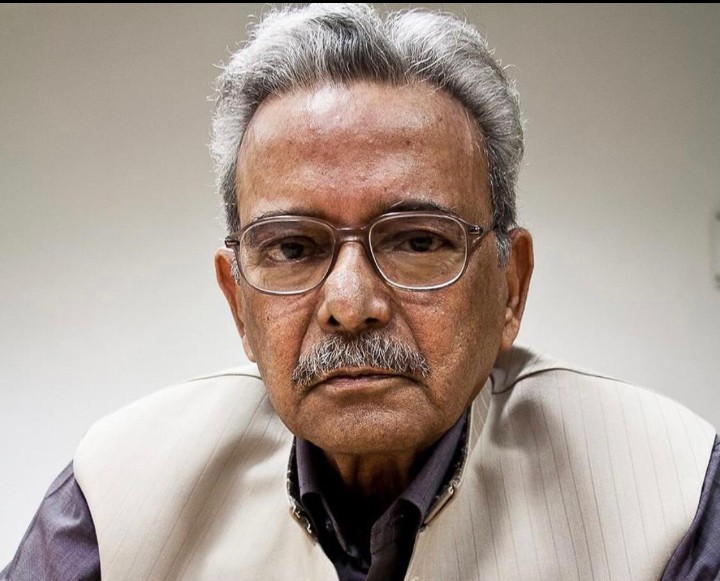Last Updated on December 25, 2020 3:40 pm by INDIAN AWAAZ

WEB DESK
Renowned Urdu poet, critic and theorist Dr Shamsur Rahman Faruqi passed away in Allahabad today. He was 85.
“He had been insisting to go back to his home in Allahabad. We reached here only this morning and within half an hour he passed away at around 11,” Faruqi’s nephew and writer Mahmood Farooqui told media.
Faruqi discharged from a hospital in Delhi on November 23 after recovering from coronavirus.
Born on September 30, 1935, in Uttar Pradesh, Faruqi is credited to have revived “Dastangoi”, a 16th century Urdu oral storytelling art form.
His books “Mirror of Beauty” (translated into English from the Urdu “Kai Chaand The Sar-e-Aasmaan” in 2006), “Ghalib Afsaney Ki Himayat Mein” (1989) and “The Sun That Rose From The Earth” (2014) are among others he wrote in his five-decade-long literary career.
He also received Saraswati Samman in 1996 for his work “She”r-e Shor-Angez”, a four-volume study of the eighteenth-century poet Mir Taqi Mir.
Writer William Dalrymple took to Twitter to mourn the demise of Faruqi.
“RIP, Janab Shamsur Rahman Faruqi saheb, one of the last great Padshahs of the Urdu literary world. This is such sad news,” Dalrymple said.
Faruqi formulated fresh models of literary appreciation. He absorbed western principles of literary criticism and subsequently applied them to Urdu literature but only after adapting them to address literary aesthetics native to Arabic Persian and Urdu .
Faruqi was awarded the prestigious Saraswati Samman Prize from the Birla Foundation for his four-volume selection and interpetation of the lyrical work of Mir Taqi Mir (1722-1810). Among his other honours are two Doctorates honoris causa from the Aligarh Muslim University and the Maulana Azad National Urdu University, Hyderabad. He has received the Urdu Award from the Sahitya Akademi (India’s National Academy of Letters) and the highest national level Awards from many State Urdu Academies.
Faruqi has produced four volumes of poetry in Urdu. The Colour of Black Flowers (2002), a parallel text English translation of his selected poems, 1959–2001, was well received. Faruqi’s poetry has its passionate admirers as well as detractors, but everybody accepts the fact that he writes like no other Urdu poet writing anywhere today. His poems focus on the perils and possibilities of the modernization of his immediate literary and social culture. His love poems mostly deal with unsuccess, betrayal, and loneliness. He makes use of his extraordinary knowledge of stylistic tools, themes and motifs from classical Urdu poetry as well as western literature to conduct stylistic and thematic experiments in which the pictorial aspects of the language and its evocation of forms and colours takes precedence over any “message” that the poem may have to convey.
